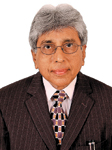In an unprecedented back down on the patent front in India, industry advocate the Indian Pharmaceutical Alliance and staunch challenger Natco Pharmaceuticals have dropped opposition to the patent application for Gilead's ($GILD) Sovaldi (sofosbuvir) as a unique licensing and manufacturing pact appears solidly backed by all generics companies.
 In January of last year, the alliance filed a pre-grant opposition, followed by Natco in April for an application filed in October 2009, with the Business Standard noting that last week India's Patent Office disposed of both challenges and the application is still pending.
In January of last year, the alliance filed a pre-grant opposition, followed by Natco in April for an application filed in October 2009, with the Business Standard noting that last week India's Patent Office disposed of both challenges and the application is still pending.
A key reason is seen in a deal reached this year between Gilead and several Indian generics makers that in May saw Mylan ($MYL) start sales of licensed copies of the drug in India and in specified developing markets that do not include China, diminishing the likelihood of compulsory licensing.
The treatment of chronic hepatitis C infection has proven expensive at $84,000 for a 12-week course in the U.S. It's equally costly in other major reimbursed markets, making it out of reach for poor, unreimbursed patients in India, where the World Health Organization estimates 12 million people have the disease.
The alliance said the license deal was a key factor, according to the Business Standard.
 |
| D.G. Shah |
"We wanted to give a message to the world that here is a model, where IP (intellectual property) and access co-exist. We also wanted to tell big pharma that IPA is not unreasonable and we aren't blindly following an idea that we must oppose patent application. If you provide access, we have no issue," D.G. Shah, secretary-general of the alliance, told the Business Standard.
But as Roche ($RHHBY) can attest, working with domestic companies to bring Indian prices down doesn't grant multinationals a guarantee that their patents are safe. The Swiss drugmaker responded to price criticism by cutting Indian prices of the breast cancer drug by 31% in 2013 and partnering with Emcure Pharmaceuticals to produce a less costly version there.
In August, however, the Kolkata Patent Office denied Herceptin's IP shield under claims that it wasn't properly submitted, and Mylan and Biocon revealed that they had biosimilars ready to go just three months later.
And civil opposition to Gilead has not abated with patent opposition in place from the Initiative For Medicines, Access & Knowledge (I-MAK), a legal advocacy group, and Delhi Network of Positive People (DNP+) still in place, Tahir Amin, I-MAK's co-founder and director of intellectual property told the Business Standard.
"The only impact is that because Natco and Zydus (which is a member of the alliance) took a license from Gilead, the withdrawal of their oppositions is akin to a settlement agreement," Amin said. "The other impact is there will be two less generics companies that can now supply non-licensed territories because of the restrictive nature of the licenses. So by taking the licenses it reduces the competition in the non-licensed territories which is Gilead's intention."
The Economic Times reported that even at a lower price in India, drug companies are considering monthly installment payments, and in some compelling cases where affordability stands as a barrier, the drug is given for free.
"The market is competitive, because a lot of people have launched the drug, but we have done a little bit of innovation because of the chronic nature of the medicine and the cost," said GV Prasad, chief executive of Dr. Reddy's Laboratories ($RDY), a local license holder, told the Economic Times. "We are experimenting with the EMI (installment payments) system of financing."
- here's a story from Business Standard
- and one from the Economic Times